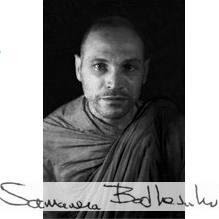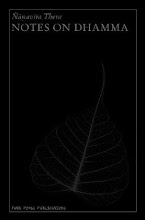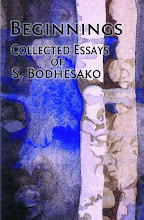Ein Gedi, 1965
The wadi is flooded. The wadi is the watercourse which collects water during the rains in the desert and carries them off in great flash floods. The wadi which separates the kibbutz from the fields on one side and everything else on the other originates in Jerusalem: we're on a mesa. When it rains a lot in Jerusalem the waters pour off the hills there into our wadi, course through the Wilderness of Judea (we're actually right on the edge between the Wilderness and the Negev), and finally muddy brown and roaring, plunge down 1300 feet of rapids to the Dead Sea. Yesterday about a 6 inch wide stream of clear water was trickling through the wadi. It rained all last night here and, presumably, in Jerusalem, and this morning the water was about 10 feet across and 3 or 4 feet deep. The wadi itself is about 25 feet across so it's not a total flood. When it's a total flood it is impossible for anything to pass by and all our food and supplies must be flown in by helicopter. This happens almost every year. The floods are late this year, however, so it might not happen.
The best thing about the wadis being flooded is that it is not possible to get to the fields to work, so we have today off, The worst thing is the wind and rain preceding it. We have sheets of plastic covering most of the crops to protect them from bad weather and cold, and Saturday the gales became so strong they tore some of the plastic strips off and everybody had to rush down to the fields and work like crazy for about 2 hours to put the plastics back and protect the crops. We have, just last week, transplanted 80,000 tomato seedlings into a field 15 acres big. I planted about l,5 miles of plants myself, every 16 inches apart. This plastic had torn loose and was a devil of a time getting back in place. Some people are calling me to go down the mountain (we're about 300 feet above Dead Sea level) and have a closer look at the wadi.
11:00 AM
The above was written at 9:00. By 10:00 it had begun raining hard, we were by the wadi, and it had reached its full expanse of 25 feet, It's narrower, deeper, and faster farther up the mountains. We walked up the pathways along the wadi for about an hour, crossing into Jordan by the way, and finally found shelter under an overhang. As we sat there resting (very rugged terrain, hard walking) just ahead came a huge crash which might have been a cannon until we saw huge boulders cascading into the wadi, hundreds of feet to fall by now. At this point we decided we'd had enough. Graham, an experienced rock climber, decided it was too dangerous. More boulders came crashing down opposite us on the other side of the wadi. We ran along as pebbles and small stones rolled down. There were occasional great crashes as something big fell somewhere. Eventually we got back to where the mountain sheers off instead of sloping. Here there's a broad expanse. On our right, when we had left there had been no water. Now it was already flooded several feet making the expanse an island. Even as we stood in the center we saw a trickle of water flowing down threatening to divide the island in half. So we ran to the shallowest point and forded the right side of the wadi. The great Italian boots I got last May kept me dry, everyone else had soaked feet.
We climbed back up the path to the kibbutz, As we looked back one half of the island had disappeared. A waterfall had broken through the path leading to the fields leaving a sheer 8 foot cliff -- impossible to anything except our bulldozer, which will be busy when the waters subside.
In the distance we can see 300 foot waterfalls cascading down sheer cliffs of huge mountains bathed in clouds; and even as I write this in my room I can hear the roar of the wadi's waters far away.
The roads are quite impassable now, and I expect if the waters don't subside by tomorrow we'll have food flown in and the pregnant women will be flown out.
8:30 PM
The kibbutz, we found out at lunchtime, has been trying to reach Jerusalem all morning. The only connection is by radio-telephone and atmospheric conditions were so bad they couldn't get through. (Jerusalem, on a map, is actually very close to us. It's only the border that makes it such a long way round.) Finally the weather broke about noon and the sky cleared up a bit. About l:45 the helicopter came. I know they didn't take anyone back with them, but couldn't see if they landed anything. It certainly wasn't mail if they did, and probably not food judging from dinner tonight. It went away shortly and no other helicopters came to-day.
Not only is the road impassable because of the water, but huge boulders and rockslides have obliterated sections of the road. It will take at least a day with full work teams to clear what's there now. And about 5:00 it began raining again and is still raining. The best weather report we can get indicates rain in Jerusalem, so there's very little chance of the flood receding tomorrow.
Wednesday.
Yesterday a big helicopter came -- one that could hold 9 people -- and unloaded vast supplies of bread, milk, eggs, cheese, etc. We were almost on the point of running out of everything but chocolate bars, so it was very welcome indeed. The helicopter took some people back with it.
Today it rained a little but the waters have receded to only a trickle, leaving tons of soil on the road. A truck went out this morning (or perhaps the Jeep) and made it to En Bakek and back with more supplies. The roads might be cleared by the end of the week. There's been no mail in or out for 3 days now -- I don't know why the truck (or Jeep) couldn't have taken mail or brought it back, but it didn't. Perhaps En Bakek is also cut off, but I don't think so -- it's half way to Beersheva, and the floods shouldn't be as bad there.
Tuesday,
The wadi is flooded again! This is the first time it has ever flooded twice in one year. Rains in Jerusalem melted the unusually heavy snowfall in the hills and made their way down here.
This morning we went out to work in tremendous winds and uncertain rain, preparing a new tomato field by laying out plastic strips over each furrow to protect the plants we'll put in from the winter weather. We wanted to finish today, so we worked through to the end, about l2:45. Just as we finished the truck came to the fields to take us back, tearing along like hell. They'd heard from Jerusalem that floods were imminent. We piled on and crossed the dry wadi. It's about a two minute ride from the wadi to the kibbutz, As soon as we got there we ran to the edge of the mesa and saw a wall of water tumbling down the wadi. If the truck had been three minutes later we would have either been trapped on the other side or washed into the Dead Sea!
This is the view of the cultivated area from the kibbutz on the mesa: across the north bank of the wadi is a large field of egg plants, onions, peppers, and new dates; in the wadi itself we have five smaller fields (two empty, one cucumber, and two tomato), which are separated by five walls -- these fields are bounded by a sixth wall with windbreaks (at the east and west corners), by an unpaved road to the south, by the main paved road to the east, and Wall l to the west.
We watched the water rise quickly. The water piled up against Wall 1 finally pounding it down and pouring in. Wall 2 never had a chance and crumbled immediately. If Wall 3 went the road will have dropped low enough for the water to flow around Walls 4 & 5, wiping out 20,000 cucumbers and 80,000 tomato plants -- the ones we put in just a few weeks ago with so much effort and work.
The roar of the water was tremendous. In the distance huge waterfalls fell hundreds of feet, feeding the wadi with more floodwater strength. Water poured through Wall 2, ripping it to pieces, rushing against Wall 3, which held, and held, and, finally, slowly, began to leak water under its foundations and, as we all watched in silence, it collapsed.
The protective plastics, which had shimmered in the sun, were swept away instantly, uselessly, and the fields were covered and drowned. The work that was lost!
The water flooded over the road and washed to the sea.
We went down to the road later and found a swift river flowing across it, which Sol and I decided to ford. The water was bitterly cold, and running very fast. It rose no higher than my knees, but the splash as it hit me rose to my thighs. We held on and moved across it, finally reaching Wall 6. There was, of course, no question of crossing the wadi. Huge boulders, 200-300 pounds, were leaping through the air like frogs, crashing against each other with great thudding clashes constantly, so swiftly did the water flow. It crept up over the bank on the other side and carved a path through the peppers and the young date palm plantation. It began to undercut the wall just beyond where we were standing. Whole trees bobbed to the surface, were pulled under, and reappeared five seconds later 100 yards farther on. We took photos, then turned back as the water cut deeper under the wall. Returning we had to go against the current. We had to walk on the road, where it was swiftest, because everywhere else it was too deep.
Finally we felt it was too dangerous to cross the main flow. It had picked up much force in just the last few minutes. we stood there, wet to our thighs in freezing water, unable to go farther, when, after about 5 minutes, the tractor came down with Franco driving it. He cut through the water and pulled us in. On the way out the wheels of the tractor were slipping slightly. And this current was nothing, nothing whatsoever, compared with the speed of the water in the wadi!
So we got out safely. About 30 minutes later Wall 6 gave way, flooding the entire area where we were and finishing the few tomatoes that had survived the previous deluge.
Once again, of course, there was no traffic, no mail, only a mile wide circle of muddy water in the Dead Sea, very clearly defined, shaving the range of the flooded wadi's force, and, miles to the south, a second ring showing the impassability of that other wadi. I've washed the mud off of me and am lying here in bed, still listening to the roar, penetrating even here, of the wadi far below.
Saturday.
Late Tuesday night we saw car headlights to the south. Somebody was trapped just south of the lower wadi, between it and the En Bakek wadi. Heid probably been there since the wadis flooded, about 1:00. They got him out about 12:30 at night, I don't know how, but we saw the Jeep he was in the next day. It was a total wreck.
By Wednesday the waters were low. Thursday they were gone and a huge mud flat surrounded the areas where the windbreaks were, which is just beginning to dry. We've been working long and hard hours since then to repair the damage and we're almost caught up now.
Early Friday morning Moshe's wife had twins and last night the kibbutz had a celebration for its first multiple birth. So life goes forth-and multiplies.




